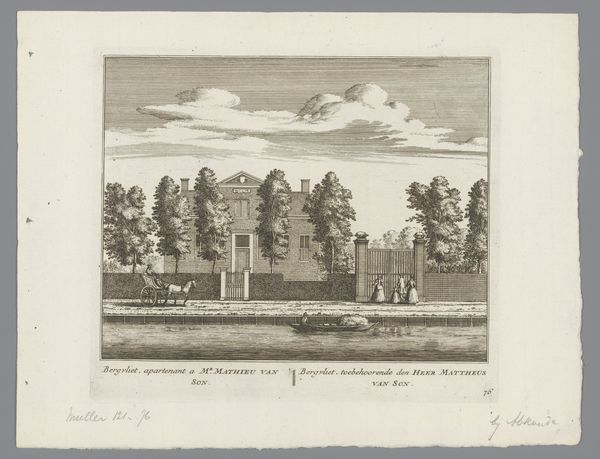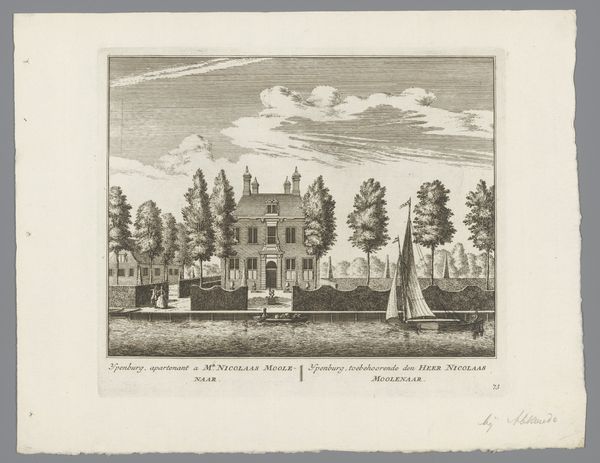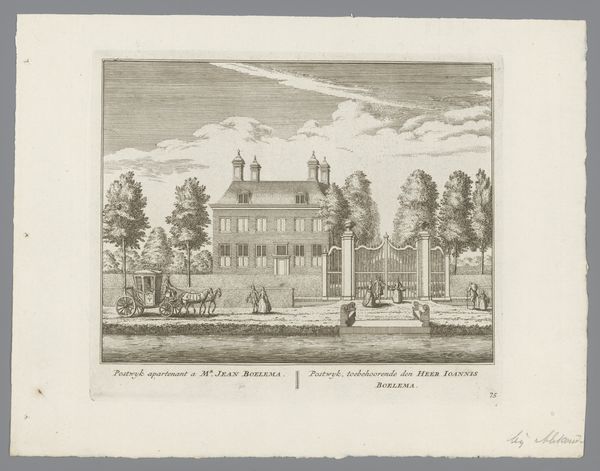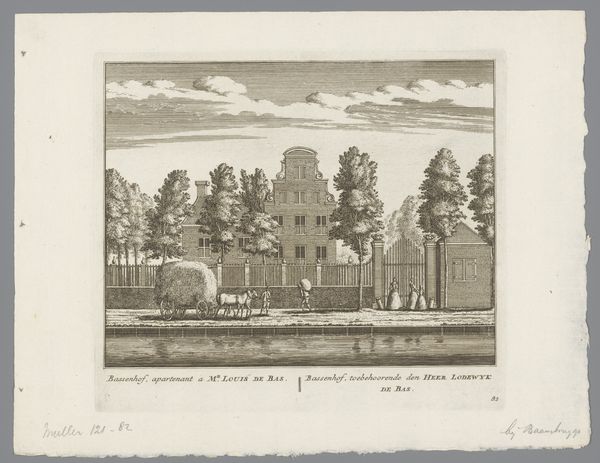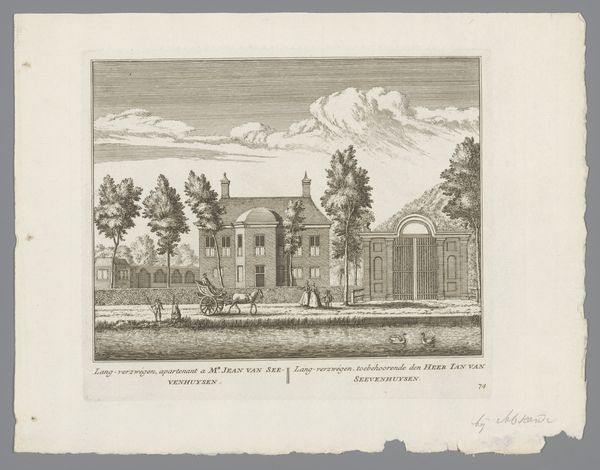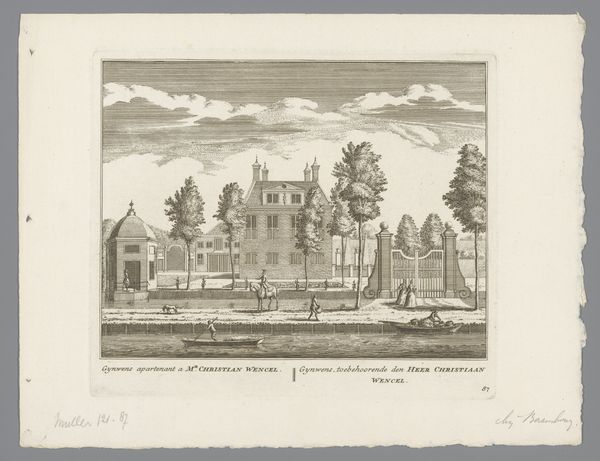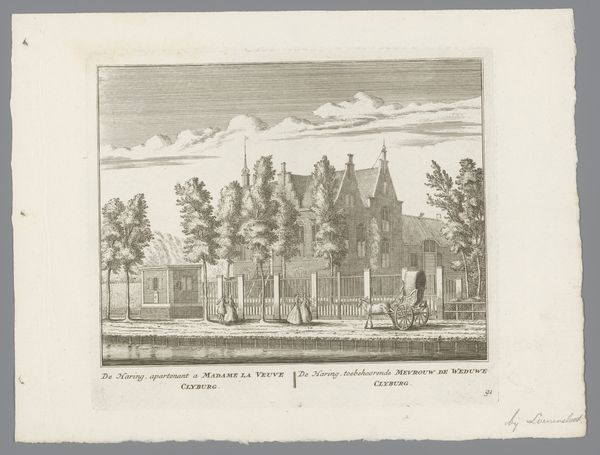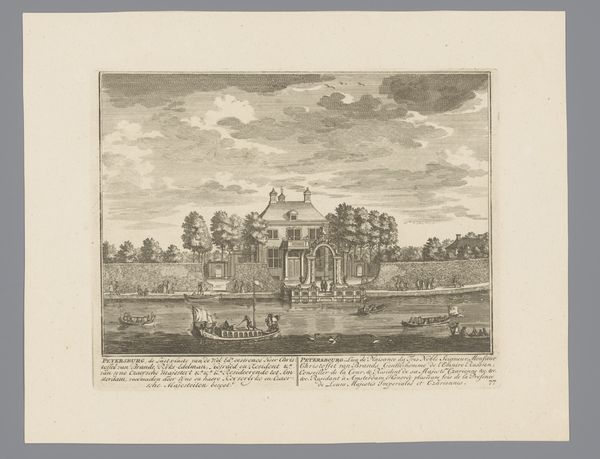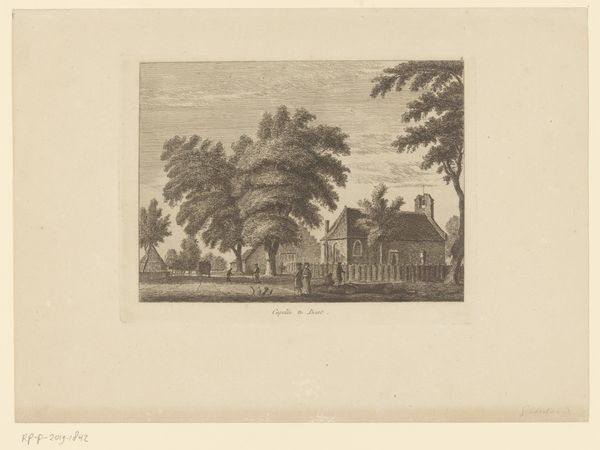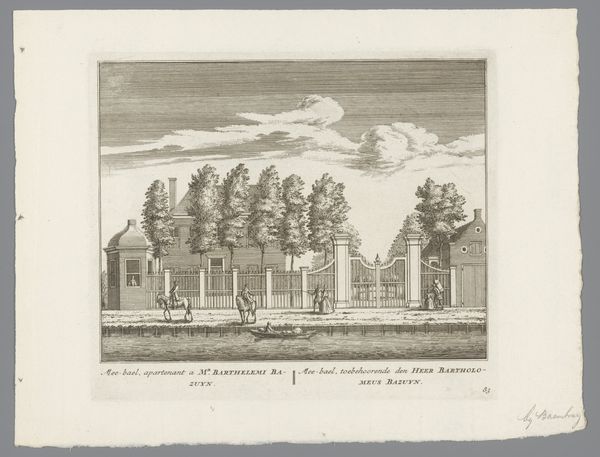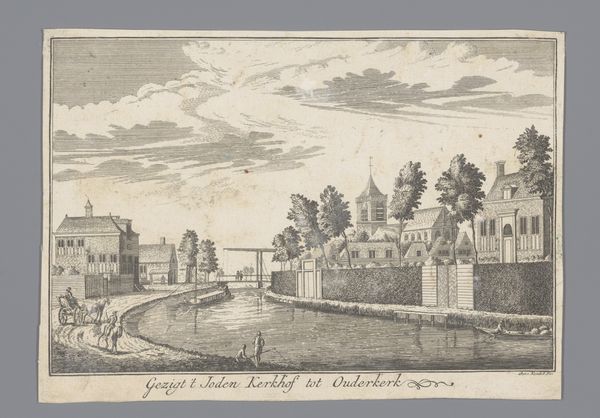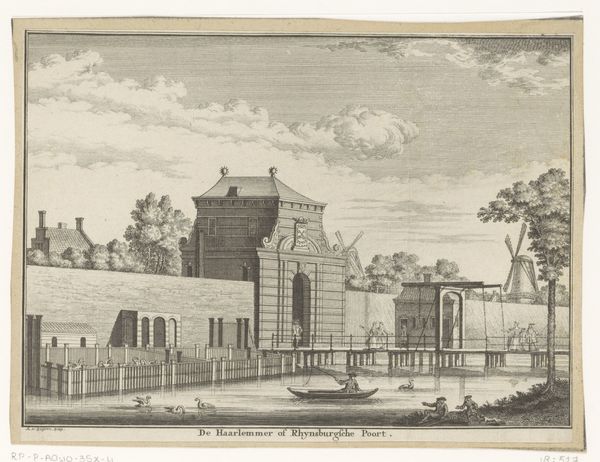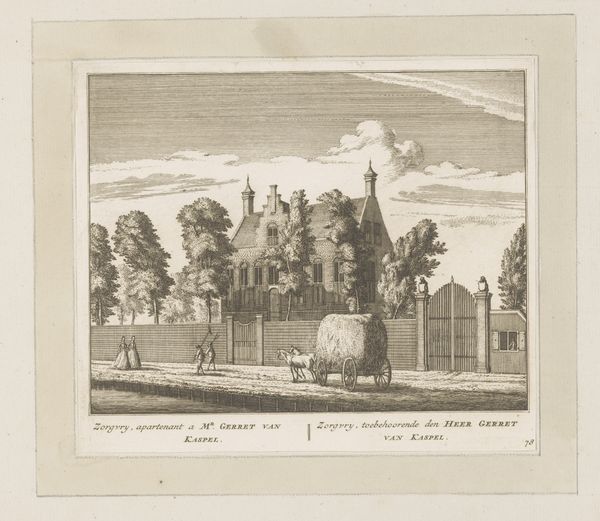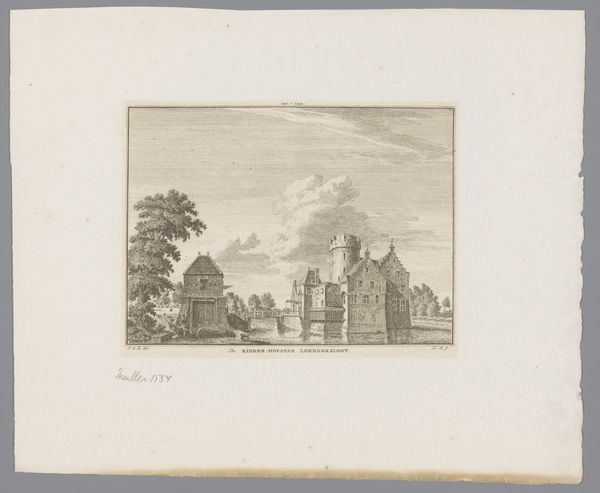
print, etching, engraving
#
dutch-golden-age
# print
#
etching
#
landscape
#
cityscape
#
engraving
Dimensions: height 172 mm, width 199 mm
Copyright: Rijks Museum: Open Domain
Curator: This is "Gezicht op de buitenplaats Binnenrust, in Abcoude," or "View of the Binnenrust Estate, in Abcoude," a print by Abraham Rademaker, dating back to 1730. The Rijksmuseum is lucky to have this piece. Editor: Ah, I love this! It has the quiet feeling of a world going about its daily life. It reminds me of those serene afternoons spent near the river back home, except with grander houses! Curator: Indeed, it gives a valuable glimpse into the Dutch Golden Age. This etching offers insight into the period’s architectural preferences and landscape design, while showing something about social status, too, wouldn’t you say? The Gouuset family must have been quite influential to have their estate memorialized. Editor: You can tell this was intended to impress, despite the rather mundane scene. What exactly is etching though? Is that like when you scratch into a surface with a tiny needle to get the details? Curator: Yes, that’s right. And the fine lines help define the textures and shadows. These methods allowed for a great distribution of images during this era. It helped proliferate tastes in the culture, especially related to country estates. Editor: You know, looking at this, it strikes me how carefully constructed the whole scene is. I mean, those fluffy clouds look almost theatrical, and the whole building composition seems like they wanted it to be very picturesque! And not at all accidentally overgrown with wild ivy. Curator: Right. Even the little boat has figures placed strategically, like miniature actors on a stage, adding a sense of scale and animating what would otherwise be a very static image of a place. What a nice place it would have been for the elite to entertain, though. Editor: Definitely a tranquil image. The artist gave a snapshot that shows you this estate. Makes me wish I was there to pass an afternoon. Curator: Me too, to have a peak into this scenery in its time and context would have been remarkable, wouldn't it.
Comments
No comments
Be the first to comment and join the conversation on the ultimate creative platform.
